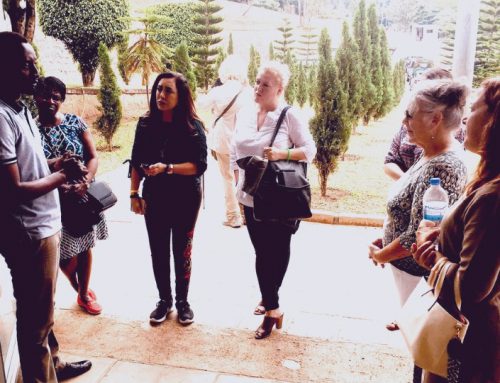Frequently Asked Questions About the You’re so Rude App:
Responses provided by Lew Bayer, President Civility Experts Worldwide. Press may use the responses as quotes.
1. did you create this App? The research is showing that manners and social intelligence have declined significantly in the past few years. Between trying to keep up with technology and struggling to find balance between work, family, school, etc, most people are busy, tired and stressed out. And when we’re busy or tired or stressed- that’s when we tend to do things that may not be appropriate, or when we don’t stop to think about the impact or perception of our actions. At Civility Experts Worldwide, we believe most people want to be their best self-most people want to show respect and be courteous, but the fact is, we’ve gotten a bit lazy, developed some bad habits, and we either don’t have time to learn what is appropriate- or, we don’t know where to look.
2. Isn’t it rude to call other people rude? It’s all in the approach, the APP is designed so that pointing out a rude behavior is more about raising awareness than pointing fingers- many people don’t know that they are being perceived as rude, for example, maybe no one ever told them that they should shake hands in business interview settings. And sometimes you have to find the courage to let people know when they are behaving badly- especially if continuing the behavior can harm their credibility or impact their employability or damage their relationships.
3. Won’t people be hurt or angry if they get a You’re Rude message? Isn’t labeling someone’s behavior like cyber bullying? All the comments are sent by Etiquette Patrol – the senders name and contact information is not ever known by the recipient- so the comments are anonymous and the App itself monitors the tone and words used in delivering the polite and/or rude “chirps”. The intention is to raise attention, to get people to think about respect, to take responsibility for their actions and to learn how to do better.
Also, in using the App, we hope that someone who wants to send a “you’re so rude” message out of anger or spite or just wants to be hurtful, uses
the App rather than approach someone face-to-face in an aggressive or bullying way and risk a situation escalating.
4. Why do you think we need to tell people about their rudeness at all? There is a lot of research showing that there are tangible and intangible costs of incivility- it erodes trust and social capital, it impacts our health and stress levels, it damages our confidence and reputations, it even impacts productivity, retention and the bottom line- incivility by many reports is at an all time high. We need to do something to start to change all this.
The other important point I’d like to make is that somewhere along the way we seem to have forgotten that on a basic human level, we’re all equally
accountable for civility- we have a responsibility to be aware of our own manners and to work to be courteous to our neighbours, family members,
co-workers, and even strangers, especially when we’re talking about behavior in workplaces and shared public spaces. We know that people aren’t always paying attention to the impact of their words and actions, so how will they know where to improve if no one tells them?
5. How does the APP work? Because we are not trying to create hard feelings or conflict, and because the research shows that many people aren’t comfortable pointing out other people’s bad manners, (often because they don’t want to admit they don’t know what the current social rules are themselves), we created the YoureSoRude and YoureSoPolite Apps to give people a tool to use to teach other what the expected and respected etiquette rules are and to learn those rules themselves. The App is easy to use- involves creating a polite or a rude “chirp” by choosing from a series of pre-loaded drop down menus. You can see a video about how to use the App here !
6. What is youresopolite all about? One of the best ways to foster civility and respect is to reward good behavior and so we want people to be able to do that too- the Youresopolite option lets you tell someone he/she is making a difference by showing courtesy in some way. These chirps are sent from the Etiquette Patrol as well- so they are anonymous – this because positive feedback about courtesy often means more if it comes by surprise. Otherwise, people assume it’s their friend or mother or someone who “should” acknowledge or be kind to them- and sometimes we feel obligated to reciprocate- a bit like giving each other compliments. But, if I can send a “you’re so polite” notice to someone just because I truly want to acknowledge him/her and I want nothing in return- then the acknowledgement becomes more meaningful – it’s a gift sent with generosity of spirit, and this is what true civility is all about.
RESEARCH and INTERESTING STATISTICS and FACTS RELATED TO THE APP:
According to research by professors Christine Porath of Georgetown University’s McDonough School of Business and Christine Pearson of Thunderbird School of Management, rudeness at work on the rise and it costs businesses a lot of money. For example, the two professors found out that, among workers who have been on the receiving end of incivility:
- 48 percent intentionally decreased work effort.
- 47 percent intentionally decreased the time they spent at work.
- 38 percent intentionally decreased the quality of their work.
- 80 percent lost work time worrying about the incident.
- 63 percent lost work time avoiding the offender.
- 66 percent said that their performance declined.
- 78 percent said that their commitment to the organization declined.
- 12 percent said that they had left a job because of uncivil treatment.
- 25 percent admitted to taking their frustration out on customers.
Experiments and other reports offer additional insights about the effects of incivility. Here are some examples of what can happen:
1) Creativity suffers – In an experiment conducted with Amir Erez, a professor of management at the University of Florida, participants who were treated rudely by other subjects were 30% less creative than others in the study.
2) Performance and team spirit deteriorate – Survey results and interviews indicate that simply witnessing incivility has negative consequences. In one experiment, witnesses to incivility were less likely than others to help out, even when the person they’d be helping had no apparent connection to the uncivil person.
3) Customers turn away – According to a survey of 244 consumers, disrespectful behavior by employees makes people uncomfortable, and they’re
quick to walk out without making a purchase.
4) Managing incidents is expensive – According to a study conducted by Accountemps and reported in Fortune, managers and executives at Fortune
1,000 firms spend 13% percent of their work time—the equivalent of seven weeks a year—mending employee relationships and otherwise dealing with the aftermath of incivility.
For more on this research and to find out what leaders can do to tame incivility in the workplace, check out the full version of this article in the
Jan./Feb. 2013 edition of Harvard Business Review at http://hbr.org/2013/01/the-price-of-incivility/ar/1.
What drives employees to be rude? They say they have no time to be nice. Mental overload and stress short-circuit our capacity to be fully attentive about anything. But stress isn’t the only reason people are uncivil at work. The Harvard Business Review research shows that one in four people are rude because their bosses are rude. Over 60% blame their bad behavior on being overloaded at work. They say they have no time to be nice. Mental overload and stress short-circuit our capacity to be fully attentive about anything — even those with whom we work.





